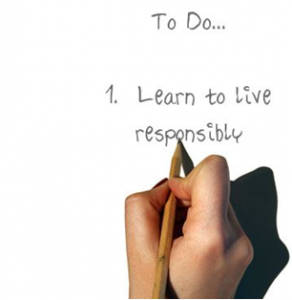By Doug Stephens
You’ve likely seen the relentless stream of news articles and blogs lately touting the “new consumer mindset”. Terms like “post-consumerism”, “belt-tightening”, “frugal chic” and other catchy slogans are being used to put a handle on sluggish consumer activity. It seems that if we can sum up a problem with a snappy catchphrase it makes it easier to rationalize.
The range of opinion on today’s consumer is wide and vacillates from day to day. One piece of data may show signs of a consumer comeback only to be negated by a different statistic the following day. All of this adds to both the confusion and desperation among retailers.
The conservative view is that buying behavior will be negatively altered for the long-term. This camp suggests that consumers will radically change their purchasing habits and indeed even dial-down their lifestyles to accommodate the new normal. In contrast, the liberal view is that as soon as the dark clouds of economic doom part, the consumer will return to their giddy pre-apocalyptic level of spending. Presumably somewhere between the two positions lies the truth. Attempting to weed through fact, fiction and journalistic hyperbole is a definite challenge.
Fortunately, a good friend and former colleague of mine sent me a piece of research last week by Yankelovich and The Futures Company that provided one of the most clear, reasonable and cogent points of view I’ve seen on the subject. Firstly it made the point that in every economic downturn, the Press has tried to convince us that consumers will consciously live below their means for an extended period. In fact, this has never been the case…ever. Secondly, it suggested that what we’ve really entered into is an era of increased personal and social responsibility. We’ve awakened to the idea that we need to live within our means – not below them – but within them. Along with this sense of fiscal accountability there come residuals, like an enhanced sense of accountability for the health of our bodies, our communities and our planet. The live now pay later philosophy is outdated. The days of on-the-spot credit approval and a free iPod with every approved credit card application are (thankfully) gone… for now.
As a result of this new sobriety, consumers will gravitate toward retailers who they perceive will help them in their quest to be more responsible – that will help them do the right thing. Assist them in buying the things that they need in a manner they can afford. Offer them products that are healthy in quantities that are sensible. Supply choices that reflect a higher level of sustainability. None of this denotes cheap, although price is and always has been a qualifier.
Ironically, the response of many retailers has been to attempt to bait consumers into buying using (almost constant) price promotion. Simply beating the price down to the point where, need it or not, the consumer might give in and buy. Clearly this doesn’t address the underlying needs and I believe that’s why it’s largely failed to stimulate activity to this point. If anything, convincing consumers to buy something they may not truly need doesn’t solve the problem, it exacerbates it.
However, resurrecting programs like layaway plans might help, especially for younger consumers who could benefit from the buy-with-cash lesson. Recommending products that last longer and therefore save money in the long-run is another form of responsible guidance to the consumer. And here’s a thought…how about rewarding customers who pay with cash instead of credit? There are many ways we can recalibrate store and company policies to help the consumer to be more conscientious.
In the end, consumers will always aspire to having more. No recession has or will eradicate the fundamental human desire for an improved lifestyle. What has changed is how we go about acquiring the things that furnish that lifestyle.
I expect that retail winners over the next number of years will not simply be those with the lowest price. The companies that rise to the top will be those that become trusted by consumers to help them do the right thing – the responsible thing, for everybody’s sake.

